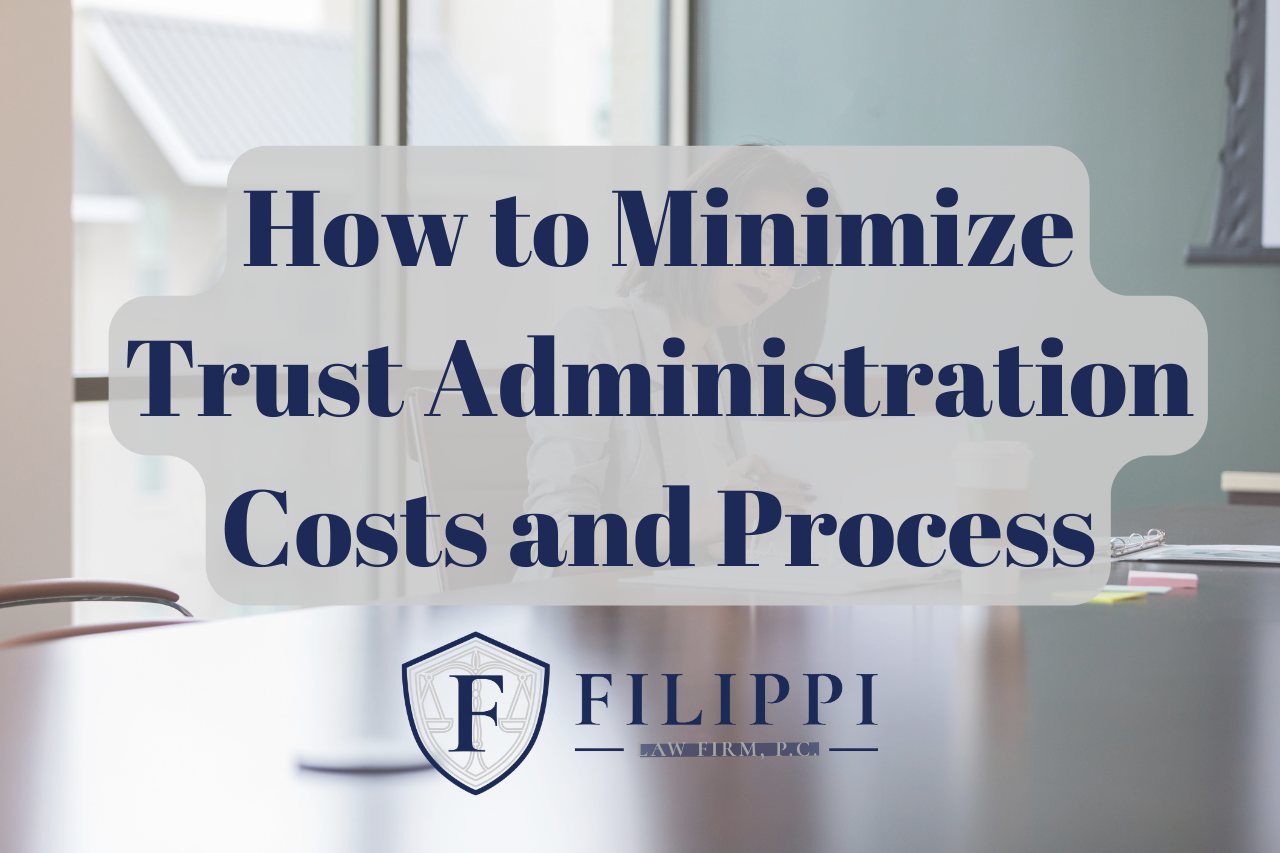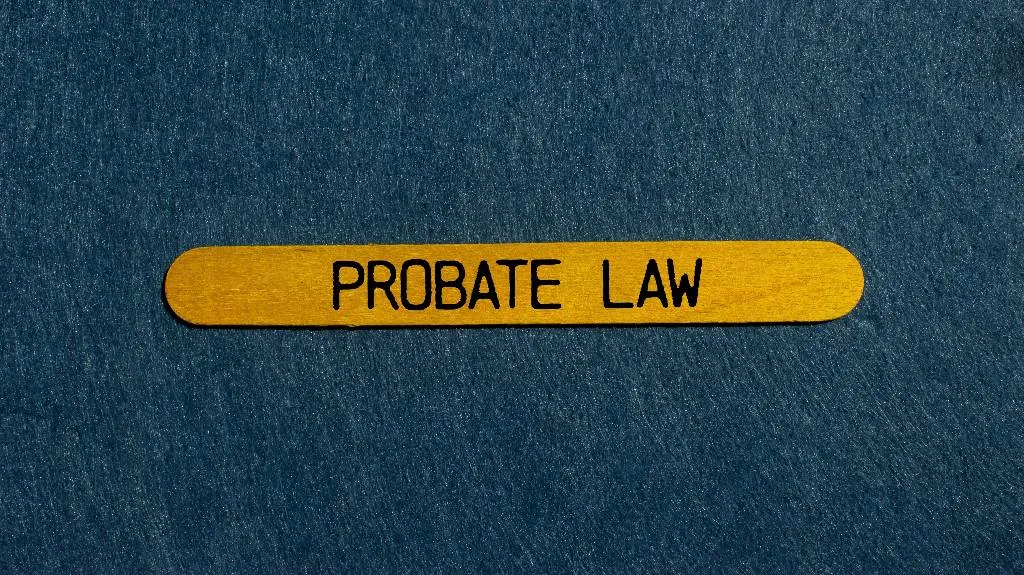How to Minimize Trust Administration Costs and Streamline the Process
Understanding Trust Administration
Trust Administration is the process of managing and administering a trust. This entails ensuring that all assets are managed effectively, taxes are filed correctly, payments to beneficiaries are made on time, and any other duties are fulfilled as specified by the grantor in the trust document. The benefits of keeping trust administration costs to a minimum include keeping more money in the trust for its intended use rather than using it up with administrative fees, guaranteeing that assets remain safe and secure, avoiding costly errors or delays due to mismanagement, and lowering stress on both the trustee and beneficiaries. It can help ensure a smoother transition into trust ownership while saving everyone involved time and money with proper planning.
Get a Free Consultation Today
Choosing the right trustee
A crucial part of creating any trust is selecting the right trustee. The grantor dictates the trustee’s responsibilities for maintaining and administering the trust, ensuring all assets are managed appropriately, taxes are filed correctly, payments to beneficiaries are made on time, and performing other duties as needed. In order to ensure that your estate planning goals are met and that your trust operates efficiently over its lifetime, it’s important to choose a capable person or institution that can handle these responsibilities.
When choosing a trustee for your family or revocable living trust, you should consider factors such as experience managing trusts of comparable size and complexity, the ability to communicate effectively with both trustees and beneficiaries, familiarity with state trust laws, knowledge of investment options available within the scope of the trust, and availability when needed. You should also consider the cost of the trustee’s services and the level of expertise offered, such as accounting or legal advice. Additionally, if more than one beneficiary will be receiving distributions from your trust, ensure that they agree on who will act as trustee.
The trustee can hire professionals to assist in managing the trust, such as legal representation, accountants or financial advisors. It may be helpful to consult with professionals for investment or other financial decisions. Collaboration with professionals can help reduce confusion among beneficiaries and foster accountability among trustee.
Comprehensive estate planning
Creating a secure financial future for your loved ones begins with a comprehensive estate plan. It involves organizing and understanding all the legal, tax, and financial aspects of your estate to ensure that it will be distributed according to your wishes after you pass away. The first step in estate planning is gathering data on assets, including real estate, bank accounts, investments, insurance policies, and other relevant documents. This includes identifying beneficiaries who are named on any contracts or accounts as well as those who may require special consideration because of their age or disability. After this preliminary evaluation is finished, a plan can be developed that outlines how these assets should be managed during life and upon death.
The next step is to determine what type of trust structure best fits your needs. Some common options include revocable living trusts, irrevocable trusts, charitable trusts, minor’s trusts, protective trusts, or other types of specialized structures like a QTIP trust. The right choice depends on a number of variables, such as the size of the estate, goals for distribution timing, asset protection and tax-saving opportunities, and desired control over current income and post-death distributions, among other factors.
Once the appropriate trust structure is selected, the estate plan can be drafted. This includes language outlining how assets will be handled throughout their lives. At this stage, you should work with your estate planning attorney to tailor your estate plan to your specific needs. After all documents are prepared, they must be formally signed and notarized.
It is also important to keep the original documents filed in a known and safe place. Its good practice to keep any amendments together with the original documents, do not write on the original documents, and use an attorney for any changes to ensure they are made throughout the estate plan to reflect your wishes. While it may be tempting to make adjustments yourself, you may risk putting your estate through issues in the future.
Transparent communication
A key component of trust administration for both the trustee and the beneficiaries is open communication. All parties should have clear information about the trust, its purpose, and how it is expected to be managed. This includes a regular update on the trust’s assets, trustee decisions, distributions to beneficiaries, adjustments to tax laws or other legal issues that may affect the trust’s operations, any modifications to exiting documents, and any other relevant information that might affect the trust’s success over time.
It’s also important for trustees to understand what their fiduciary responsibilities are so they can properly carry out duties assigned to them within reason and without potential conflicts of interest. These include always acting solely in the best interests of beneficiaries while avoiding self-serving transactions or activities that could compromise objectivity when managing funds. Additionally, it’s crucial for trustees to routinely review performance (including investment returns) against stated goals so that progress towards successful completion of objectives can be tracked accordingly.
There should be open communication, as well as transparency regarding the costs involved in managing a trust. Everyone participating in the transaction must have a full understanding of the expenses associated with the services provided, including but not limited to: accounting, legal, and tax advice; asset management; investment oversight; preparation or filing of tax returns, etc. Additionally, this understanding should go beyond the initial setup costs, ensuring that everyone is aware up front if any future payments, such as those brought on by certain occurrences, such as death benefit distributions. Last but not least, keep in mind that these kinds of costs are normally covered by principal assets kept in the trust, which means less money will be available for distribution to intended heirs when the trust beneficiary passes away.
Regular Review and Updating
A trust must be reviewed and updated on a regular basis to ensure that its goals remain relevant, achievable, and beneficial. Trustees should frequently review the trust document to make sure it reflects any changes in family dynamics or legal matters that may have an impact on it over time. This includes evaluating all assets held within the trust, assessing its performance against stated objectives, ensuring distributions are being made according to instructions set out by the grantor (or amended as necessary), and ensuring taxes are completed accurately. Additionally, trustees should also consider any revisions in local tax laws or regulations regarding trusts when conducting their reviews, as these could potentially have an impact on how money is disbursed or allocated in the future. Once everything is reviewed and updated if needed, the same process should be repeated every few years to keep things running smoothly and avoid surprises down the road.
Seeking professional guidance
Setting up an estate plan and managing a trust are no easy feats. It’s important to seek professional guidance from an estate planning law firm in your area. This can include hiring a trust and estate law lawyer as well as a financial planner or accountant to make sure all the necessary documents are filed appropriately. Furthermore, it could be beneficial to consult with a tax professional for advice on the best ways to organize investments and assets kept within the fund.
Stay up-to-date on any changes occurring in estate planning by seeking out additional resources, such as online articles or videos. We have a library of articles here. Finally, another option available for those looking to add an extra layer of protection to their assets is to enlist the services of an estate planning attorney who has experience working with similar estates. This will provide even more peace of mind knowing someone else is there to make sure everything runs smoothly behind the scenes and has experience doing it.
Creating an estate plan that reflects your wishes can save a lot of stress and resources for your loved ones. Generally, it is more profitable for attorneys if people do not have an estate plan and their estate goes through probate or if an estate plan is done poorly (such as a DIY) and must be fixed. Avoid potential issues by creating an estate plan with an attorney as soon as possible.
Conclusion
Managing a trust requires close attention to detail and responsibility to ensure that all assets are managed properly and beneficiaries receive the appropriate distributions according to the terms of the trust document. It is important for trustees to stay up-to-date on changes in laws or regulations regarding trusts as well as utilize professional advisors and other resources that can help simplify administrative tasks while minimizing costs whenever possible. By leveraging these tools effectively, it is possible for trustees to streamline the process while still meeting their fiduciary obligations, so that everyone involved can benefit from the long-term success of the grantor’s estate plan.
Filippi Law Firm, P.C., provides legal services in estate planning, probate, trust administration, trust litigation, and personal bankruptcy in the greater Sacramento area, with a focus in Rocklin, Roseville, Lincoln, and Granite Bay. Give us a call at (916) 333-7910 or fill out the contact form to get in touch with our office. Consultations are free, and they can be done over the phone, via Zoom, or in person at our office in Rocklin.




